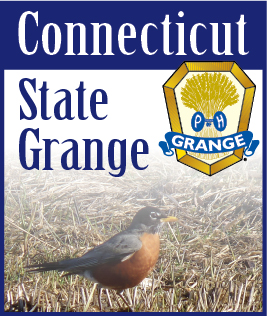| OCTOBER 7, 2012 -- In the past two weeks, two different studies released have shown growing disparities in health between rural residents and their urban counterparts.
In a study released by British researchers, who looked at medical data from more than 12,000 people around the world, including the U.S., we learn that those living in rural areas are twice as likely to develop Alzheimer’s.
According to the Alzheimer’s Association, one in eight older Americans are diagnosed with Alzheimer’s, a form of dementia that gradually gets worse over time and affects memory, thinking and behavior. It is the sixth leading cause of death in the United States, and until now has not been associated with geographic location. Instead, risk factors included age, family history and genetics.
The study offered no definitive reason as to why rural residents suffered higher rates of Alzheimer’s.
However, it’s studies like this that National Grange Legislative Director Grace Boatright says are important in order for us to understand why the Grange must continue to focus on rural health issues and advocate for this underserved population.
“As the number of people living in rural America continues to decline, we’re often ignored or underserved by everything but disease. Granges must become the voice of their communities, informing their neighbors about health issues, and the voice for their communities, advocating about these issues to legislators who allocate resources for disease prevention and treatment,” Boatright said.
Last week, a study published in the Journal of Rural Health, showed that rural Americans specifically were nearly 20 percent more likely to be obese than those living in cities.
In all, 39 percent of rural Americans, versus 33 percent of the overall population, are considered obese, according to the study’s lead author Christie Befort.
Authors found the greatest disparity could be seen between rural and urban 20- to 39-year-olds.
Researchers suspect a change in the employment type and culture of rural America has something to do with the high rates of obesity in this subset of the population.
Researchers said diets that have remained unchanged from a more physical culture, such as farming and manual labor, to mechanized jobs could explain the excess weight many young rural residents are carrying.
Medical health professionals tell us that extra weight can lead to much higher risk for gallstones, type 2 diabetes, high blood pressure, high cholesterol, heart disease, stroke, sleep apnea and more. Recently researchers have also showed a link between obesity and heightened risk of various cancers, noting being obese can actually change human gene regulation.
“It’s studies and results like these that make the Grange’s focus on rural health issues so important,” National Grange Legislative Director Grace Boatright said Tuesday. “We cannot bury our heads in the sand about things that can literally kill us. We must take action and ownership of the responsibility of making our hometowns healthier places for us to live.”
Also, ironically, rural residents don’t have the same access to healthy, fresh foods as urban consumers.
There are many studies to show that rural Americans have worse shopping access to healthy food choices, says Barry M. Popkin, professor of nutrition at the School of Public Health at the University of North Carolina at Chapel Hill.
“Granges themselves may not be filled with physicians or researchers, but they can be places where real change is enacted for the health of their communities,” Boatright said.
The study notes that gyms and fitness-related public areas are not often found in rural America, so public areas such as Grange Halls can become even more important, Boatright said.
“Imagine being able to open your Hall for a fitness class or have members formalize an agreement to include in meetings a time for physical activity,” Boatright said. “There are so many ways a Grange can give back to their community, and while we consume what we want during the potluck, we may want to burn those calories at some point during our meetings or with Grange friends throughout the week as part of a walking club or by exercising within our Halls.”
Boatright also encouraged Granges to find ways to highlight issues important to rural Americans, such as Alzheimers, by holding health fairs and symposiums where experts speak about rural health issues.
As an example, reminding members that September is World Alzheimer’s Month and informing them about the disease or taking part in an event such as a Walk to End Alzheimer’s are excellent opportunities for Granges, Boatright said.
“Of course, taking part in a walk for a cause may also help combat that rural obesity issue, so two birds, one stone and a few healthier Grangers is always a plus,” Boatright said. |
